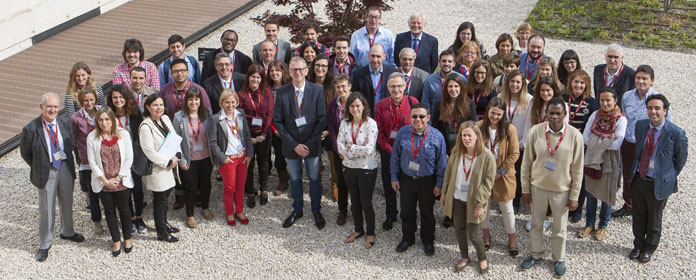French expert warns of possible resurgence of parasites such as malaria, leishmaniasis and Chagas disease
Philippe M. Loiseau affirms at the University that the partnership between research academic and private sector will be "core topic" in the fight against these diseases.

"Major pharmaceutical companies will be able to collaborate with the later stages of development of anti-parasitic drugs but not in their early stages. Therefore, cooperation between the academic research and the private sector will be core topic in the fight against parasitic diseases." Philippe M. Loiseau, an expert from the University of Paris-Sud, spoke at the University's 4th Tropical Health Symposium.
As he explained, this partnership "will allow crucial exchanges of scientific knowledge and regulatory expertise, both of which are essential for the actual development of drugs". Among these, he highlighted "those promising compounds of natural origin" that have been identified as a result of the academic research and that could be key in the fight against these ailments that affect 700 million people and account for around two million deaths a year.
"Parasitic diseases impair farm and domestic animal life in all regions of the world, including Europe, Asia, Australia and the Americas. In addition, increased movement of people and animals, and global warming may contribute to the re-emergence of some deadly or debilitating parasitoses in areas where they were absent or had been eradicated," he said. These include malaria, leishmaniasis, African trypanosomiasis, Chagas disease, schistosomiasis and onchocerciasis.
In this regard, although vaccination against some parasites has been investigated, its efficacy remains "disappointing". "The recent application of the first vaccine against canine leishmaniasis is an encouraging example but it has only obtained partial protection and widespread application is uncertain due to its high cost," he added during his discussion paper.
Medicinal herbs against tropical diseases
Over the course of two days, international experts from more than fifteen countries attended quotation at the event organized by the University's Tropical Healthhigh school to share their advances in the research of tropical diseases. Among them was also Josphat Matasyoh from Egerton University, Kenya, who spoke about the employment of medicinal herbs against these pathologies.
"More than 80% of the African population uses traditional medicinal plants in their primary health care needs, so researching them adds value by confirming the presence of active ingredients in them," he said. Among the advantages of using these remedies are their low cost and ease of use availability so "they are an important part of the strategy against these diseases".
Thus, to date they have managed to scientifically validate "the use of Teclea Nobilis and Rapanea Melanophloes as plants with active ingredients against schistosomiasis, an acute and chronic disease caused by parasitic worms that affects 200 million people worldwide. In addition, we have produced a larvicide that can be used against mosquito vectors of malaria".
